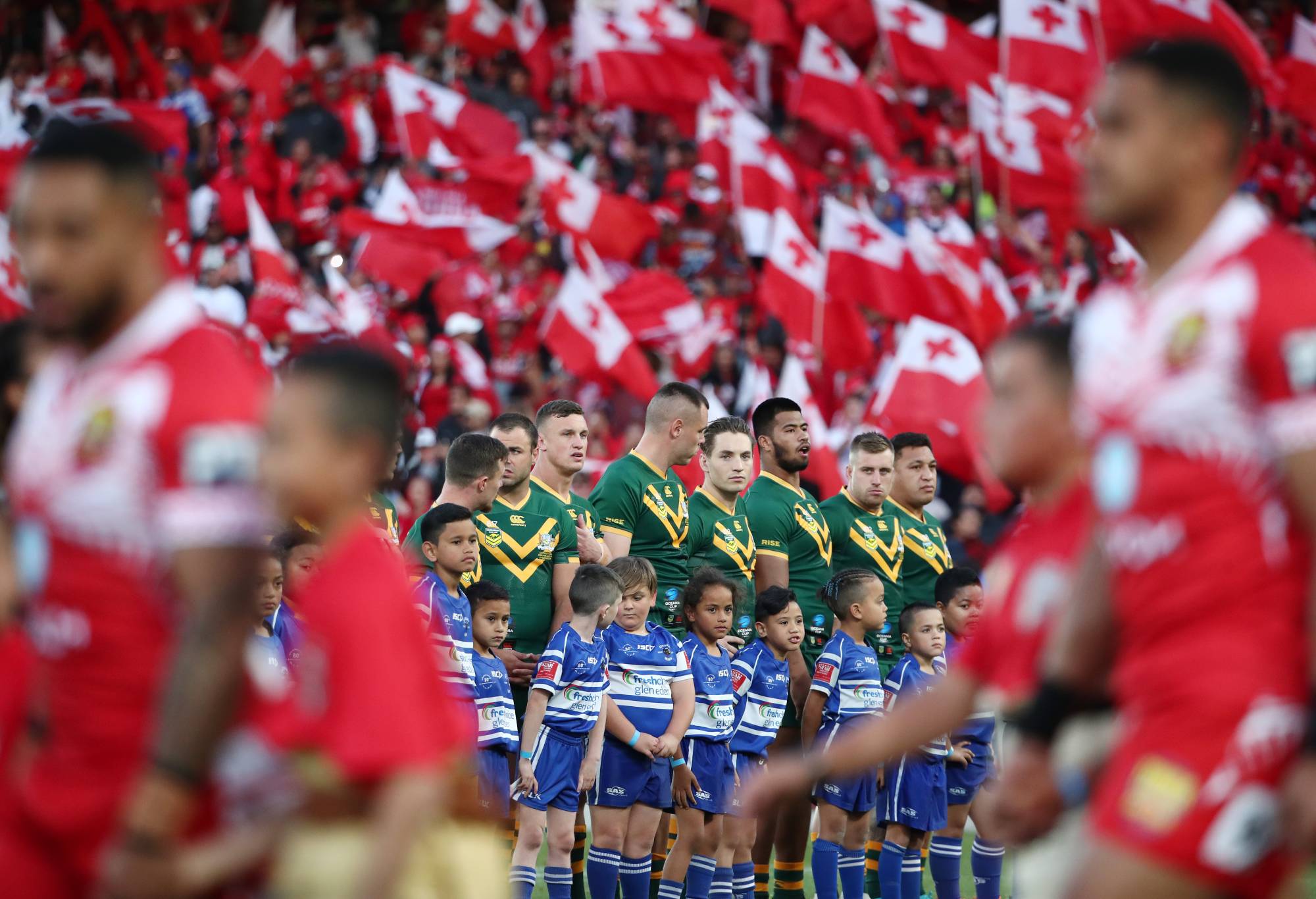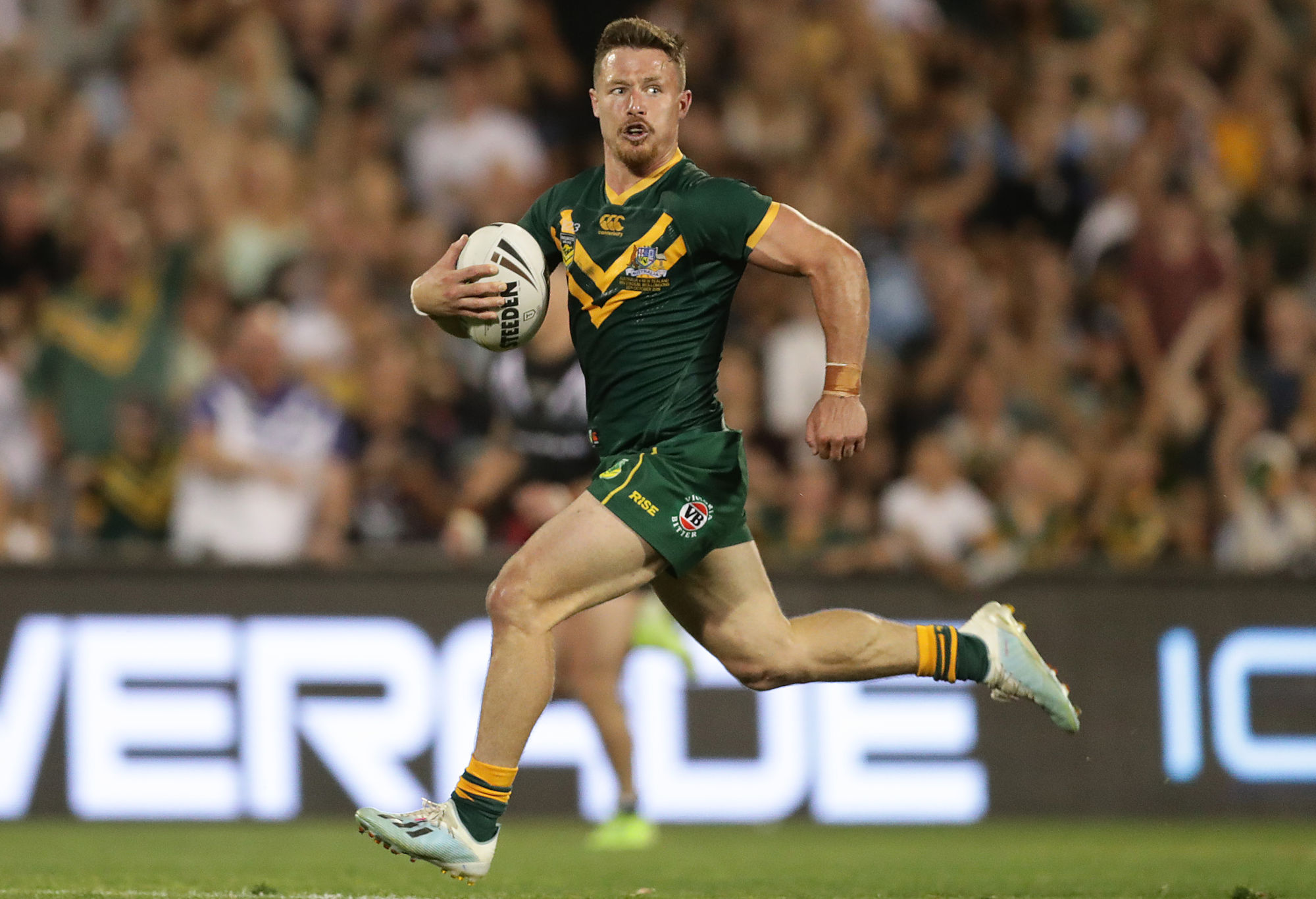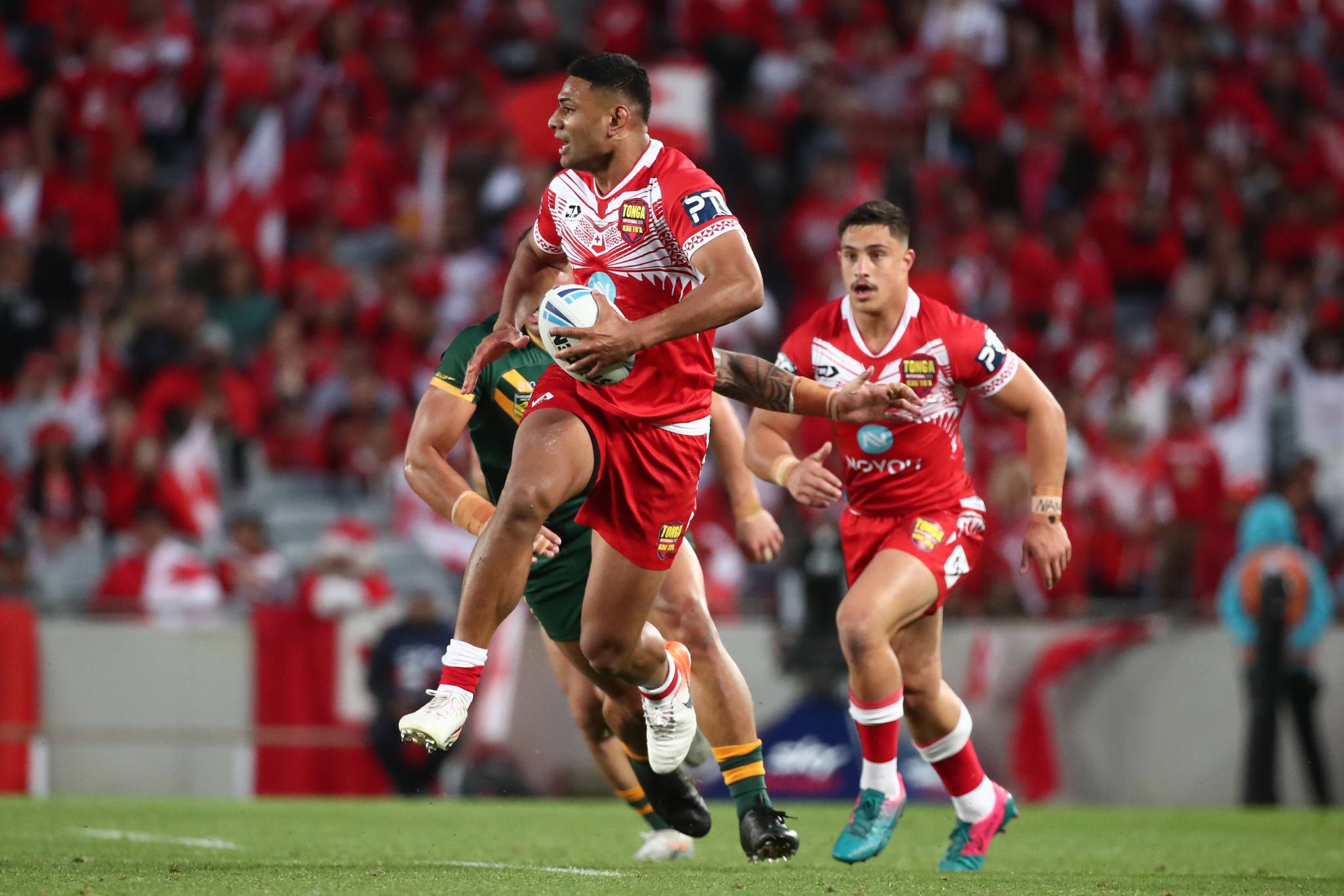The rise of the Pacific nations is adding to the significance of international rugby league for all nations, including Australia.
A few sad sacks bemoan the fact that many of the players who represent the Pasifika nations were born in Australia or New Zealand but that misses the point.
If the Kangaroos or Kiwis cannot come up with enough international quality players from their much-larger population bases, then they’ve got no one to blame but themselves.
Granted, it’s only certain geographical areas of Australia, New Zealand and England for that matter that tend to produce rugby league players but with populations of 26 million Down Under, 5 million in NZ and 56 million for the English, they should dominate rugby league internationally.
Particularly when Tonga’s population is little more than 100,000 residents, Samoa is around double that and Fiji is up to 900,000.
They have large expat communities in Australia and NZ who for the most part have emigrated in pursuit of more financially lucrative opportunities. Why shouldn’t the sons and daughters of these families want to represent their heritage?

The Kangaroos line up for the national anthems before the Test vs Tonga at Eden Park in 2019. (Photo by Fiona Goodall/Getty Images)
For those complain “that player should be playing for Australia because they were born in Western Sydney”, if the shoe was on the other foot and they moved to another country, can they honestly say they would not allow their offspring to wear the green and gold in that scenario? Thought not.
It’s going to be a long time, if ever, before rugby league gets its act together before the sport can be set up in new territories across the world. With its inextricable link to rugby union, it’s already terminally behind the eight ball when it comes to trying to compete with the 15-player code’s global reach.
And it’s not like all the best Pasifika talent born in Australia and New Zealand is turning their back on those two nations. There is more than a dozen players in Sunday’s Origin game who are also eligible to represent Pacific teams due to their family heritage while the Kiwi team which faces Mate Ma’a Tonga on Saturday in Auckland also contains many players who could have pledged their allegiance elsewhere.
Blues winger Daniel Tupou has already declared he wants to represent Tonga instead of Australia at the World Cup at the end of the year and he will not be the only dual-eligibility player who makes that choice even though playing for the Kangaroos delivers more to the bank balance.

Damien Cook of Australia (Photo by Mark Metcalfe/Getty Images)
Dominance can be damaging
After the Kiwis won the World Cup in 2008, the Kangaroos have barely been troubled. They had won nine matches on the trot before the upset loss in the final to New Zealand and since then, their record stands at 41-6-1 while regaining the Cup and successfully defending it along the way.
They lost two of their last four matches – to New Zealand in 2018 and Tonga three years ago before internationals shut down when the COVID-19 pandemic hit but if anyone can justify how the Kangaroos are now fourth on the IRL world rankings after their decade-plus dominance behind the Kiwis, England and Tonga, then logic is not your ally.
All sports fans want their national teams to be dominant but when there’s no competition, the passion for Test football drops. Not just among the supporters but also the players.
It wasn’t that long ago that the Australian team was struggling to get the top talent to make themselves available for Test duty.

Daniel Tupou. (Photo by Fiona Goodall/Getty Images)
In the early 2000s, NRL stars would often prioritise rest and booking in early for off-season operations ahead of end-of-year tours in the green and gold.
It got to a stage where the ARL resorted to sending letters to Origin players in 2003 to let them know they must be assessed by the Kangaroos’ doctor before they can declare themselves unavailable for duty.
The previous year 19 players withdrew from the Tri Nations tournament in England when they were ruled out by their club doctors, prompting suspicions that their NRL teams had exerted pressure on them to avoid rep duty.
It was easy back then for Australian players to be apathetic. Even when under-strength, they would consistently trounce England and the Kiwis but that started to change when New Zealand flogged them 24-0 in the 2005 Tri-Nations final and then upset them again three years later to lift the World Cup.
In recent years it has been the rise of Tonga, Samoa, Fiji and Papua New Guinea which has given international rugby league the shot in the arm it has needed.
Look through the team lists for this weekend’s Representative Round – these four nations are filled with not just NRL experience but top-line talent like Jason Taumalolo, Justin Olam, Josh Schuster, Viliame Kikau, Jaydn Su’A, Kotoni Staggs and Maika Sivo.
It’s often said that Origin is successful when Queensland is defying the odds to beat the more populous NSW and the same can be said of rugby league internationally – when Australia are dominating, interest wanes but when we have an upset like Tonga’s win over the Kangaroos at the end of 2019, it brings legitimacy to a sport that is much maligned for its small global footprint.
So much of international rugby league’s efforts to boost its credibility, popularity and financial status depends on the World Cup.
The year’s tournament in the UK in October is no longer a near foregone conclusion and no matter where you’re born, that can only be viewed as a much-needed step forward.































































































